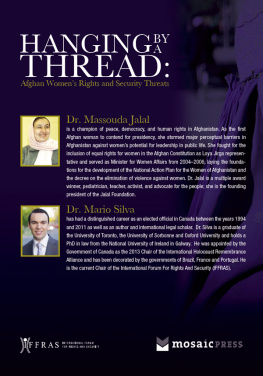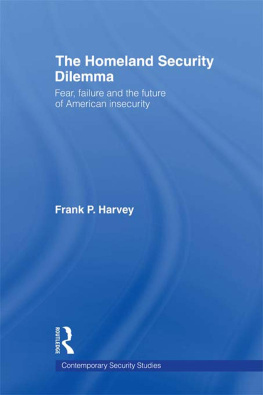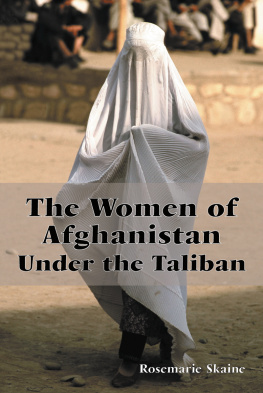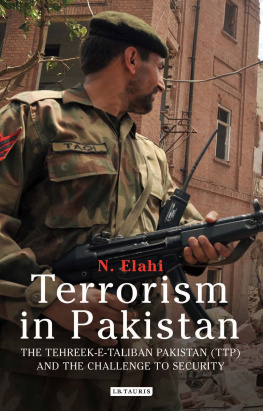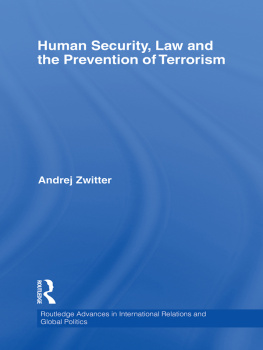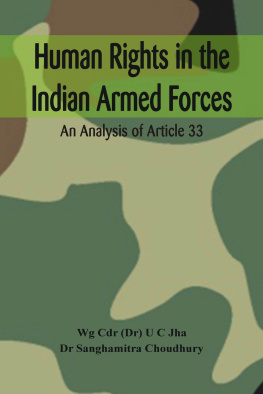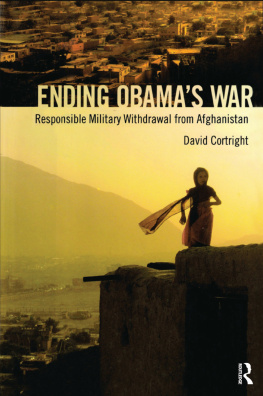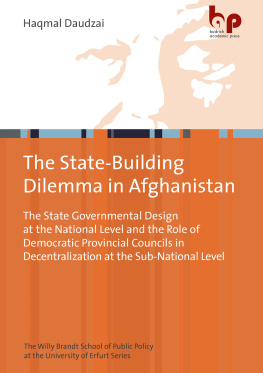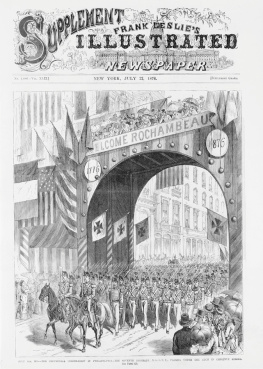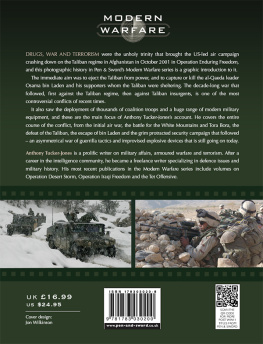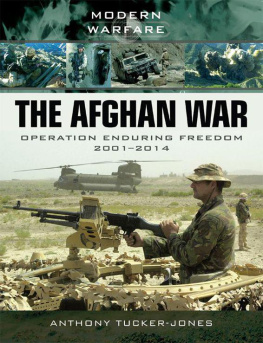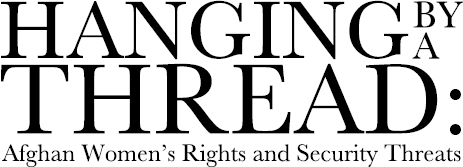
Dr. Massouda Jalal & Dr. Mario Silva

THIS BOOK IS DEDICATED TO HUMAN RIGHTS DEFENDERS IN AFGHANISTAN AND AROUND THE WORLD

Copyright 2014 by Dr. Massouda Jalal and Dr. Mario Silva
All rights reserved. No part of this publication may be reproduced in any manner whatsoever without written permission from the copyright holders.
Published by International Forum For Rights And Security (IFFRAS) (www.iffras.org)
Cover design by Joanne Howard, Small Dog Design (www.smalldogdesign.ca)
Front cover photo International Forum For Rights And Security (IF-FRAS)
Back cover photos courtesy of the authors
Distributed in Canada by Mosaic Press (www.mosaic-press.com)
Distributed in the United States by Bookmasters (www.bookmasters.com)
Distributed in the United Kingdom by Gazelle Book Services (www.gazellebookservices.co.uk)
Library and Archives Canada Cataloguing in Publication
Jalal, Massouda, 1962, author
Hanging by a thread : Afghan womens rights and security threats / Dr. Massouda Jalal & Dr. Mario Silva.
Includes index.
Issued in print and electronic formats.
ISBN 978-0-9914209-1-9 (bound). ISBN 978-1-77161-076-6 (epub).
ISBN 978-1-77161-077-3 (pdf)
1. Womens rightsAfghanistan. 2. WomenLegal status, laws, etc.Afghanistan. 3. WomenAfghanistanSocial conditions. 4. National securityAfghanistan. I. Silva, Mario, 1966, author II. International Forum for Rights and Security, issuing body III. Title.
HQ1236.5.A34J34 2014 305.4209581 C2014-900942-9
C2014-901163-6
First printing
Printed in Canada
Produced by Callawind Book Publishing.
A division of Callawind Publications Inc.
3551 St. Charles Boulevard, Suite 179
Kirkland, Quebec H9H 3C4
www.callawindbookpublishing.com

CONTENTS
PART I: THE LONG STRUGGLE FOR WOMENS
RIGHTS IN AFGHANISTAN,
Dr. Massouda Jalal
PART II: AFGHANS RIGHTS AND SECURITY
TRANSITION POST 2014
Dr. Mario Silva
PREFACE

The book, HANGING BY A THREAD: AFGHAN WOMENS RIGHTS AND SECURITY THREATS, is a result of meeting Dr. Massouda Jalal during my visit to Afghanistan between June 2530, 2010, with a delegation of human rights campaigners from Canada led by the president and founder of One Free World International, Reverend Majed El Shafie.
During our visit we had an opportunity to meet several members of the Afghan government, including the Minister of Foreign Affairs, the Minister of Education, and one of President Karzais senior advisors.
Dr. Jalal was kind enough to invite us to her foundation, and we spent several days meeting with individuals of domestic violence and child abuse, and other victims of human rights violations. Her foundation is very active in the protection and promotion of womens human rights and undertakes advocacy and lobbying on their behalf.
Although Dr. Jalal was a member of the Karzai government, she has always stressed her independence and is a leading critic of the Afghanistan governments failure to advance the social, economic, and political rights of women. During my terms as Member of the Canadian Parliament, I had several opportunities to invite her to speak to parliamentarians and before the Foreign Affairs Sub-Committee on International Human Rights. Dr. Jalal is a board member of the International Forum for Rights and Security, which I chair.
The book is divided into two parts. Part I introduces the history of womens struggle in Afghanistan before and after the fall of the Talibanthe human rights challenges and the need to build an enduring peace with womens full participation.
Part II focuses on the issues of security, state failure, the application of international law, terrorism, and the structures and supports that need to be in place following the United States military withdrawal by December 2014.
Dr. Mario Silva
PART I

The Long Struggle
for Womens Rights
in Afghanistan
Dr. Massouda Jalal
INTRODUCTION

I remember you
when you gain your rights, reach your goals and hope(s)
but the path is hard, full of obstacles, you must learn how to cope
to cope while struggling for your ultimate goal
a reborn woman, free, independent and whole.
Once again, the women of Afghanistan are hanging by a thread, and our nation is at a crossroads. Now, just when the country is beginning to slowly move forward, Afghans are expected to independently accomplish something that over ten years of massive international support could not achieveto put an end to the war. I would like to share with you a part of this frightening reality; namely, the perspectives of those who are not being heard back home, laying bare the urgent security issues that Afghan women face as we transition towards sustainable peace.
Our governments vision of sustainable peace is framed in a strategy with twin agenda: (1) to bring back the so-called moderate Taliban into the mainstream of national life and (2) to grant political concessions to their leaders. Women have been excluded from the process of conceptualizing this strategy; however, through informal channels we have raised our concerns regarding its wisdom and viability.
First, Afghan women know that democracy and Talibanism cannot co-exist because they are antithetical to one another. Democracy is based on the rule of law, human rights, coexistence, and the protection of human life. Conversely, Talibanism is based on despotism, repression, tyranny, and the glorification of violence. Democracy can only thrive where peace is present, whereas Talibanism can only thrive where violence reigns. Thus, to assume that the Taliban will embrace peace is an unforgivable mistake. And further, to hope that they will make peace under democratic terms is to ignore their ideological makeup. Expecting Afghanistan to make peace with the Taliban that operate both in our country and in Pakistan is like expecting the world to make peace with Al Qaeda.
Have you ever asked yourself what it feels like to have Al Qaedans living in your very midstin your neighborhoods, local businesses, government agencies, or places of worship? Do you think that making peace with the Taliban will bring about sustainable peace? If, by now, Afghans do not realize that the concept of peace held by the Taliban and Al Qaeda vetoes the democratic concept of peace, then we have lost the very essence of our statehood.
Today, our women face the nightmare of a resurgent Taliban regime. We are bewildered by the sudden obsession of our elected leaders and NATO officials to negotiate peace with the Taliban using a strategy of (1) paying off the moderates to return to mainstream life and (2) giving political concessions to the hard cores.
Second, every Afghan woman knows that there is no such thing as a moderate Taliban. The life experiences of those who have become members of the Taliban have been as uniquely edifying and compelling as the experiences that have made us lovers of peace and democracy. Nothing could genuinely convince a Taliban that terrorism is immoral and that democracy is good for the majority. To make peace with the Taliban is to allow them to erode the very foundations of democracy, which in the past decade have allowed us to live in relative freedom and harmony.
Next page
